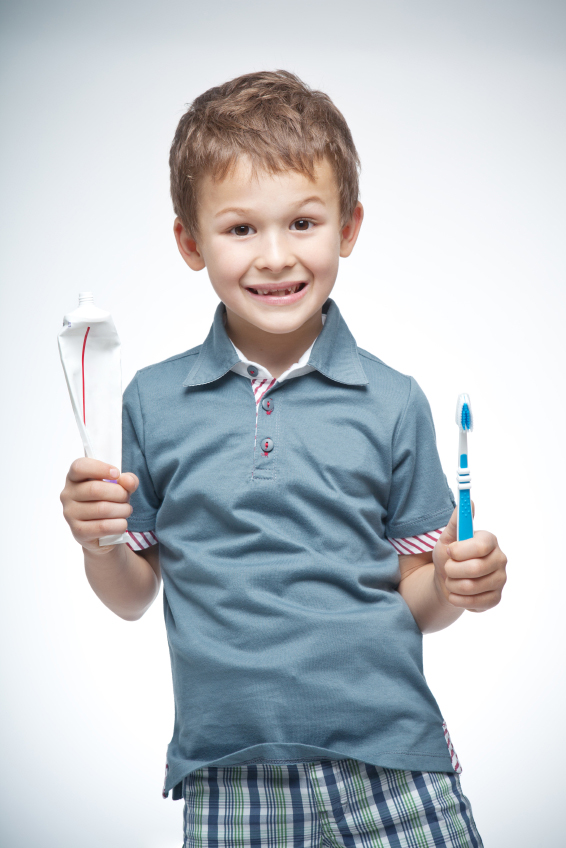Our babies and children may never acknowledge the benefits caring for their teeth at that age have on their adult teeth later. Yet, their health will always be better off from early interventions in proper oral hygiene. “Baby teeth” are the precursor for adult teeth, they are the placeholder and it’s important they be maintained for gum health and reduction of harmful bacteria.
Oral hygiene for our children begins the day their first tooth breaks through the gum. With a damp, soft cloth, lightly wipe your baby’s gums after feeding. Once more prominent, you may begin using a soft toothbrush and non-fluoride toothpaste twice a day until preschool age. At that age, the amount of toothpaste that can be safely used increases to the size of a pea.
When your child is at that age and able to brush on his or her own, it’s important to keep an eye on them. Many children find the process of brushing their teeth to be boring or unimportant, but this is an important age to develop good habits. Singing toothbrushes and flavored toothpaste help encourage kids to find the process more enjoyable and help guide them towards brushing their teeth for two minutes. Another great way to encourage your child is to brush with them and show them how to get to their molars, the back of their teeth, and the front.
Tooth health matters from the day they appear, so parents who take their children’s oral hygiene seriously and encourage good habits aid the child’s adult teeth later- even if they don’t know it yet.
For more information regarding dental exams, contact Drs. Freund and Waterloo today at 847-251-8990 or visit www.villagedentalpc.com.
Drs. Chad Freund and Cathy Waterloo proudly serves Kenilworth and all surrounding areas.

